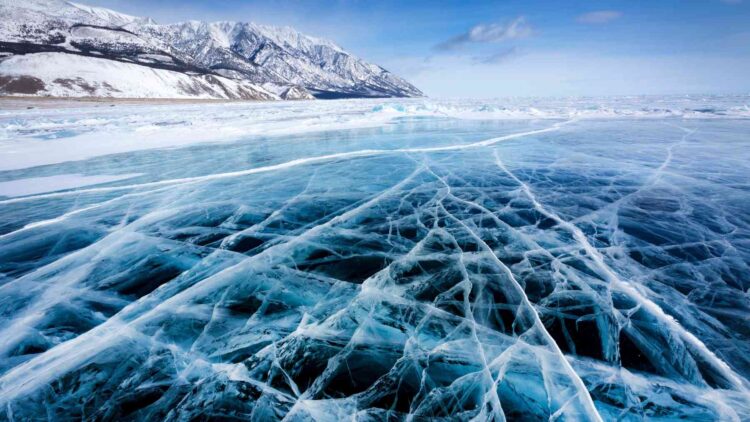The formation of the continents millions of years ago created a lot of curious ecosystems that have characteristics that are rare for the areas. Since every place on Earth has its quirks, it can be easy to dismiss how unique places are, but sometimes, like in Lake Baikal, the uniqueness of the place is so great that all we can do is learn its mysteries and appreciate them.
Located in Siberia, Russia, Lake Baikal is so big that it is a prominent feature in every map, but while its size is impressive, the most important things about it is that it is the oldest lake on Earth. Unlike most lakes it was not formed by glaciers, but by a major tectonic event when, about 25 million years ago, a rift began forming in the Earth’s crust, pulling the ground apart and creating a huge valley. That valley slowly filled with water and became Lake Baikal.
The curiosities of Lake Baikal
The most important thing that everyone should know about this lake is that, unlike most orography markers it is still growing. According to Geologists the lake is widening by about 2.5 centimeters every year, and considering that it stretches about 636 kilometers from end to end and is around 80 kilometers across, this is quite the growth rate. At its deepest point, it reaches 1,600 meters, which makes it the deepest freshwater lake on the planet.
Some have described it more like an inland sea than a lake, and its age and isolation have created a kind of living time capsule and a very unique ecosystem that cannot be found anywhere else in the planet. Scientists have identified around 2,600 species in the lake, and a huge portion of those, about 1,800, do not live anywhere else, making the lake a biological goldmine.
There are plenty of weird little crustaceans to rare types of algae and fish, but one of the most interesting animals that can only be found there is the Baikal seal, or Pusa sibirica. Seals are, in general, an evolutionary mystery, but this one in particular takes the cake as the only species of seal in the world that lives solely in freshwater. Since we do not know how this species made its way to the middle of Siberia, we can only speculate about the terrain that existed once upon a time that made it possible. One idea is that the seal made its way there through long-gone waterways connected to the Arctic Ocean, but no considering that no evidence has been found yet of these waterways, no one is really sure if that is even a real possibility.
This lake holds many mysteries, and as such there are also many legends attached to it that try to explain its creation or its uniqueness. While most of these legends can be discarded as tribes trying to make sense of the world, it remains a fascinating insight into their beliefs and the role that Lake Baikal played in their everyday lives.
The native Buryat people, the largest Mongolian ethnic group in Siberia, have a powerful origin story for the lake. According to their mythology, Baikal was created when a massive earthquake ripped the Earth open and fire burst out from deep below. The people, terrified by the destruction, pleaded with the gods to intervene and they kept crying out, “bye galo,” which means “stop the fire.” Eventually, the gods answered their prayers and the crack in the Earth filled with water, smothering the flames and creating the lake. This particular legend is important as over time, the phrase “bye galo” evolved into the name Baikal, which gave the lake its name.

